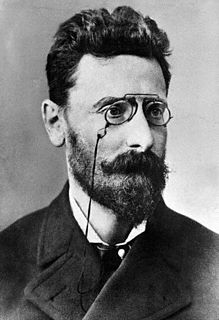The Atlanta graft ring was a corruption scandal that erupted in 1930 which generated 26 indictments and earned a Pulitzer Prize for the Atlanta Constitution newspaper.

The Pulitzer Prize is an award for achievements in newspaper, magazine and online journalism, literature, and musical composition in the United States. It was established in 1917 by provisions in the will of American (Hungarian-born) Joseph Pulitzer who had made his fortune as a newspaper publisher, and is administered by Columbia University in New York City. Prizes are awarded yearly in twenty-one categories. In twenty of the categories, each winner receives a certificate and a US$15,000 cash award. The winner in the public service category of the journalism competition is awarded a gold medal.
Atlanta had prided itself for a relatively corruption-free government throughout its history, but this changed in the 1920s. [1] On November 18, 1929, Fourth Ward Alderman Ben T. Huiet told the city council he had heard that payment of $3,500 was asked for in order to approve electrical wiring that had been installed in the new Atlanta City Hall, then under construction. [2]

Atlanta is the capital and most populous city in the U.S. state of Georgia. With an estimated 2018 population of 498,044, it is also the 37th most-populous city in the United States. The city serves as the cultural and economic center of the Atlanta metropolitan area, home to 5 million people and the ninth largest metropolitan in the nation. Atlanta is the seat of Fulton County, the most populous county in Georgia. Portions of the city extend eastward into neighboring DeKalb County.
Atlanta's Fourth Ward encompassed mainly what is now called the Old Fourth Ward.
An alderman is a member of a municipal assembly or council in many jurisdictions founded upon English law. The term may be titular, denoting a high-ranking member of a borough or county council, a council member chosen by the elected members themselves rather than by popular vote, or a council member elected by voters.
Soon after, Atlanta Constitution president Clark Howell, wrote a ringing editorial demanding the Fulton County grand jury to investigate. Foreman Thomas Lyon and Solicitor General John A. Boykin began the lengthy investigation during which, more than a thousand witnesses were called to look into the Mayor I.N. Ragsdale's administration and city council. Twenty-six indictments were made, of which fifteen were guilty and seven of those received prison sentences, including councilman Harry York. [3]

Clark Howell was a Pulitzer Prize winning American newspaper man and politician from the state of Georgia. For fifty-three years, he was editorial executive and owner of the The Atlanta Constitution.

Fulton County is a county in the north-central portion of the U.S. state of Georgia. As of 2018 estimates, the population was 1,050,114, making it the state's most populous county and its only one with over 1 million inhabitants. Its county seat is Atlanta, the state capital. Approximately 90% of the City of Atlanta is located within Fulton County. Fulton County is the principal county of the Atlanta metropolitan area.
The press coverage earned Howell and the Atlanta Constitution the 1931 Pulitzer Prize for Journalism in the Public Service category for "a successful municipal graft exposure and subsequent convictions." [4]
The following are the Pulitzer Prizes for 1931.

The Pulitzer Prize for Public Service is one of the fourteen American Pulitzer Prizes annually awarded for journalism. It recognizes a distinguished example of meritorious public service by a newspaper or news site through the use of its journalistic resources, which may include editorials, cartoons, photographs, graphics, video and other online material, and may be presented in print or online or both.
Solicitor General Boykin went on to break up Atlanta's numbers game operation in 1936.
The numbers game, also known as the numbers racket, the Italian lottery, or the daily number, is a form of illegal gambling or illegal lottery played mostly in poor and working class neighborhoods in the United States, wherein a bettor attempts to pick three digits to match those that will be randomly drawn the following day. For many years the "number" has been the last three digits of "the handle", the amount race track bettors placed on race day at a major racetrack, published in racing journals and major newspapers in New York.








